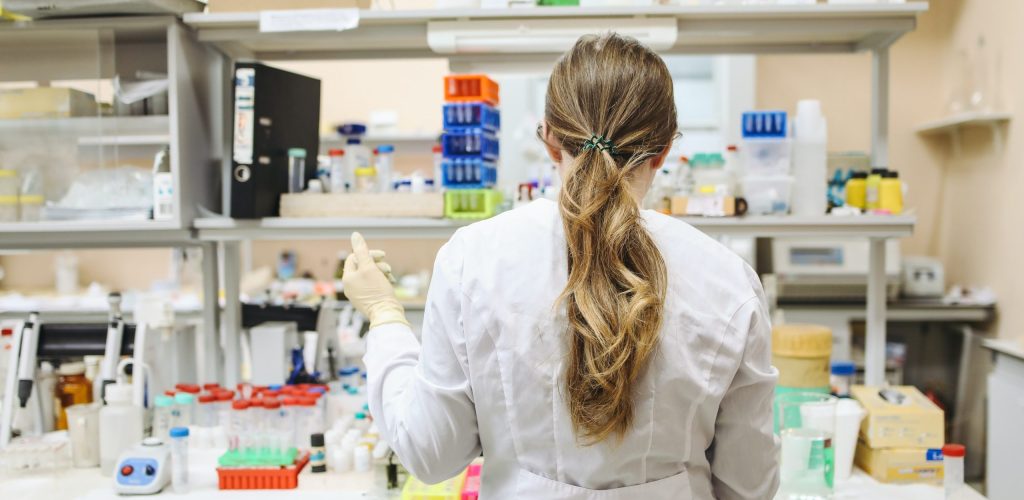Chemical engineering is a fascinating field that combines chemistry, physics, and mathematics to create new products and improve existing ones. The Bachelor of Chemical Engineering program at the Faculty of Chemical and Food Technology at Slovak University of Technology in Bratislava is an excellent program for those who want to pursue a career in this exciting field. In this article, we will explore the details of this program, including its admission requirements, course structure, and key learning outcomes.
Admission Requirements
There is no entrance examination, and candidates are admitted based on their secondary school results.
All applicants are required to provide:
- Original/ Notary verified English translation of High School diploma and transcripts
- Nostrification of secondary school leaving certificate
- Filled out E-application
- Payment of admission fee
- Scan of passport
- Signed CV
- Motivation Letter (reasons why you decided to study the Faculty of Chemical and Food Technology at Slovak University of Technology in Bratislava)
- English language certificate
- Recommendation letter/-s (if available)
Course Structure
The Bachelor of Chemical Engineering program is a 3-year full-time program that provides students with core knowledge from the field of balance theories, transfer phenomena, (bio)chemical reactors, separation processes, safety and costs engineering, combined with basic knowledge of chemistry, biochemistry, and mathematics. An essential part of the education in this study program is practical skills from chemical engineering laboratory work, which are essential for operating equipment that provides transport of liquids, their heating and cooling in preparation for relevant chemical and physical processes of production procedures and equipment for mixtures separation.
Key Learning Outcomes
The Bachelor of Chemical Engineering program provides students with knowledge in the field of chemical engineering that enables them to manage, control, and intensify complex production processes, ensuring chemical and physical changes of substances inclusive manipulation of material and energy flows from raw materials to commercial products in the field of chemical, food, pharmaceutical, biotechnological processing industries, including environmental technologies. Graduates of this program gain the skills to provide for the operation of chemical, pharmaceutical, food processing, biotechnology industries in all countries of the European Union as an operator, technologist and as a worker at positions requiring completed education of the first degree.
Occupational Profiles of Graduates with Examples
A graduate of the Bachelor of Chemical Engineering program can continue at the master’s level in the same study program Chemical Engineering or similar study programs. The graduate can streamline operation units by chemical engineering analyzing of chemical and physical processes in the standard types of industrial equipment, to work with research and development facilities, to collect and analyze data by PC, to participate in the development of new products, and to understand basic principles of loss prevention in the process industries.
EduSlovakia Can Help You Apply
If you are interested in studying the Bachelor of Chemical Engineering program at the Faculty of Chemical and Food Technology at Slovak University of Technology in Bratislava, EduSlovakia can help you with the application process. We are a company working in the field of educational immigration to Slovakia, and we can help you apply for this program or any other programs in Slovak universities. Please visit our “Apply Now” page, fill out the form, and we will get in touch with you as soon as possible to help you achieve your educational goals.
Frequently Asked Questions
The Bachelor of Chemical Engineering program is a full-time program that lasts for 3 years.
The program is taught entirely in English.
After completing the program, you will receive a qualification of bachelor (Bc.), which is equivalent to a bachelor’s degree.
There are no specific admission requirements for the program. However, you must have finished secondary education with a school leaving certificate.
No, there are no specific arrangements for the recognition of prior learning.
The key learning outcomes of the program include complex production processes ensuring chemical and physical changes of substances inclusive manipulation of material flows, thermal treatment of production processes in the field of chemical, food stuff, pharmaceutical, biotechnological productions, environmental technologies, and technologies of environmental protection.
Graduates of the program can continue at the master level in the same study program or similar study programs. They can work as an operator, technologist, or worker at positions requiring completed education of the first degree in chemical, pharmaceutical, food processing, biotechnology industries, and other similar fields.
Yes, you can pursue master’s degree programs focused on chemical engineering and environmental engineering after completing the program.
Yes, you must have finished secondary education with a school leaving certificate. Further information can be found in university regulations, including the Statute of STU and the Code of Studies.
The program provides students with knowledge in the field of chemical engineering that enables capability to manage, control and intensify complex production processes ensuring chemical and physical changes of substances inclusive manipulation of material and energy flows from raw materials to commercial products in the field of chemical, food, pharmaceutical, biotechnological processing industries including environmental technologies.
An essential part of the education in this study program are the practical skills from chemical engineering laboratory work which are essential for operating equipment providing transport of liquids, their heating and cooling in preparation for relevant chemical and physical processes of production procedures and equipment for mixtures separation.
STU runs bachelor’s and master’s degree programs that can be realized individually at one or more faculties, possibly at more faculties as an interfaculty study. Fulfillment of the requirements of studies in a program is recorded through a credit system based on the principles of the European Credit Transfer System (ECTS).
Assessment using degree is implemented according to a scale of classification consisting of the classification degrees. For more information, see Examination Regulations.
You can apply for the program through EduSlovakia, which provides assistance with applying for this program or any other programs in Slovak universities. Simply visit the “Apply Now” page






